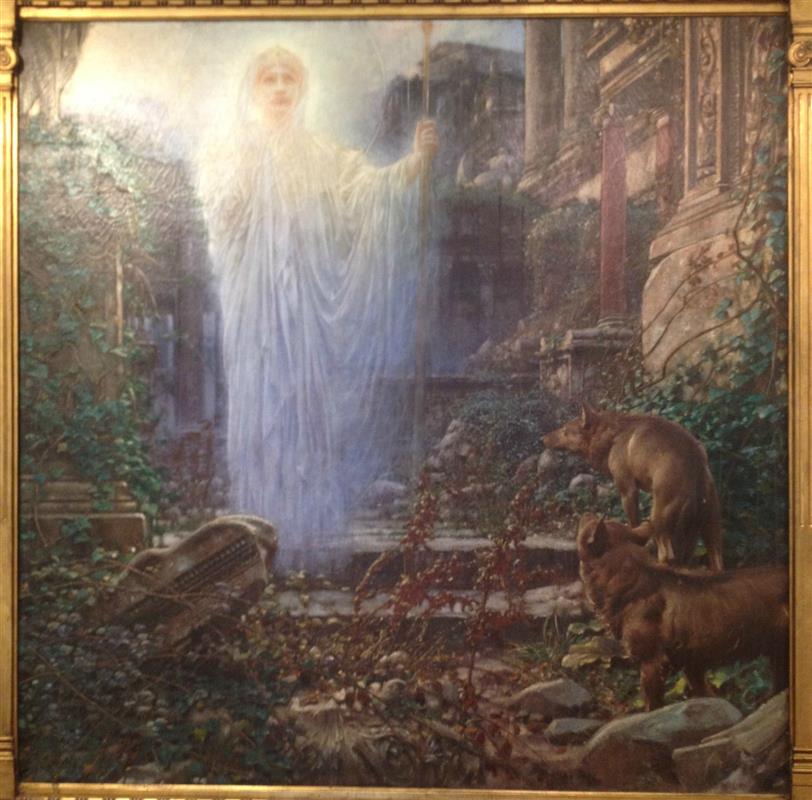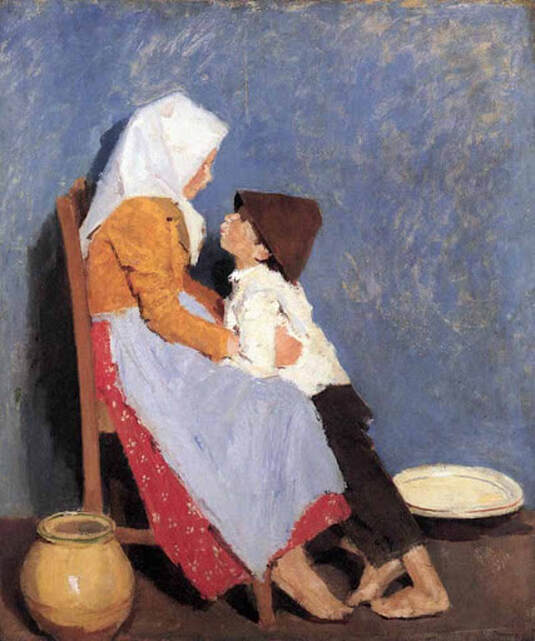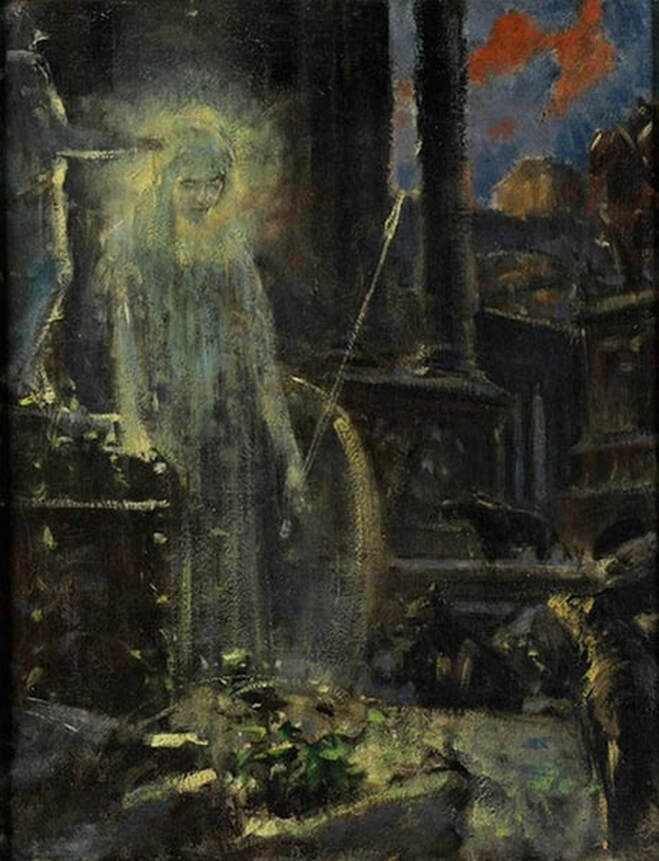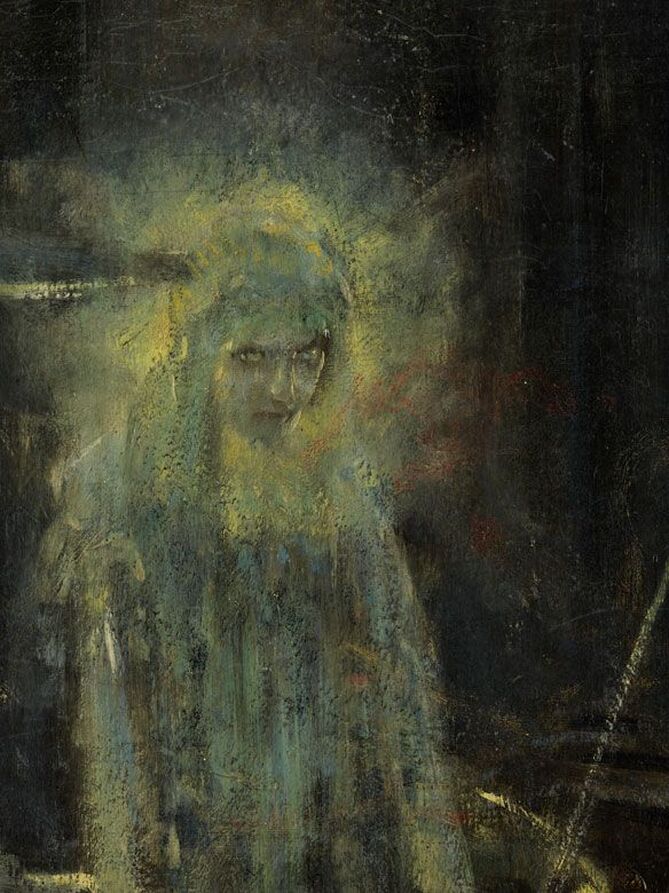The first of these studies can be seen below. Overall, I think this a stronger composition than the final version. To me, the image better reflects the former grandeur of fallen Rome, which is effectively communicated through the angles and depth Hirémy includes in this study. Also, the God of Rome is far more identifiable. Yet perhaps that is where the problem in this study is situated - a problem Hirémy no doubt recognized when he completed this draft painting.
In the final version, the Christian elements infused into The God of Rome are easily recognizable - he is bathed in light, he stretches his arms out before him, and has his eyes raised to the sky. No such Christian elements exist in the study below. Save for the faint halo around the head, the God of Rome in this study is still very much a pagan. On top of that, he looks pissed off. Note the way he stares frowningly out into his collapsed city rather than the sky. Fully armed with spear and shield, he appears enraged, ready to seek revenge. The wolves scamper about his feet; one has its head raised, seemingly ready to respond to any beck and call the god may utter.
Although I find this study better from a composition perspective, I can understand why Hirémy chose not to go with it in the end.
I imagine Hirémy ultimately rejected this image because he correctly recognized that most people would not be able to discern any semblance of Christianity emanating from this rendition of a Christianized God of Rome. At the purely surface level, I would have to agree. In this regard, the final version with the raised eyes makes more sense. All the same, I think the Christian elements Hirémy depicts here better fit the Christianity that survived centuries of persecution within the Roman Empire, then rose to become the official state religion, survived the collapse of the Western Empire, ruled the Eastern Empire for another millenium, and reigned in Europe until recently.
Once again, I can understand why Hirémy did not choose this study for the central panel of Sic Transit in the end. All the same, a part of me wishes he had because it is exactly the kind of Christianity - perhaps the only kind of Christianity - that can truly succeed in times marred the passing of worldly glory.





 RSS Feed
RSS Feed

